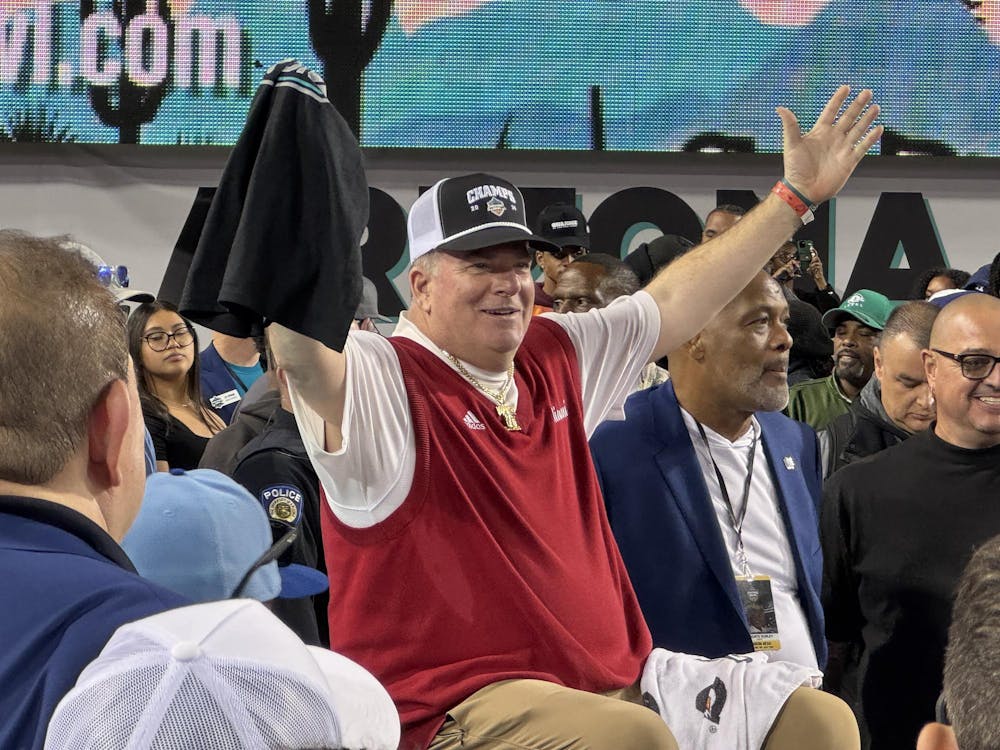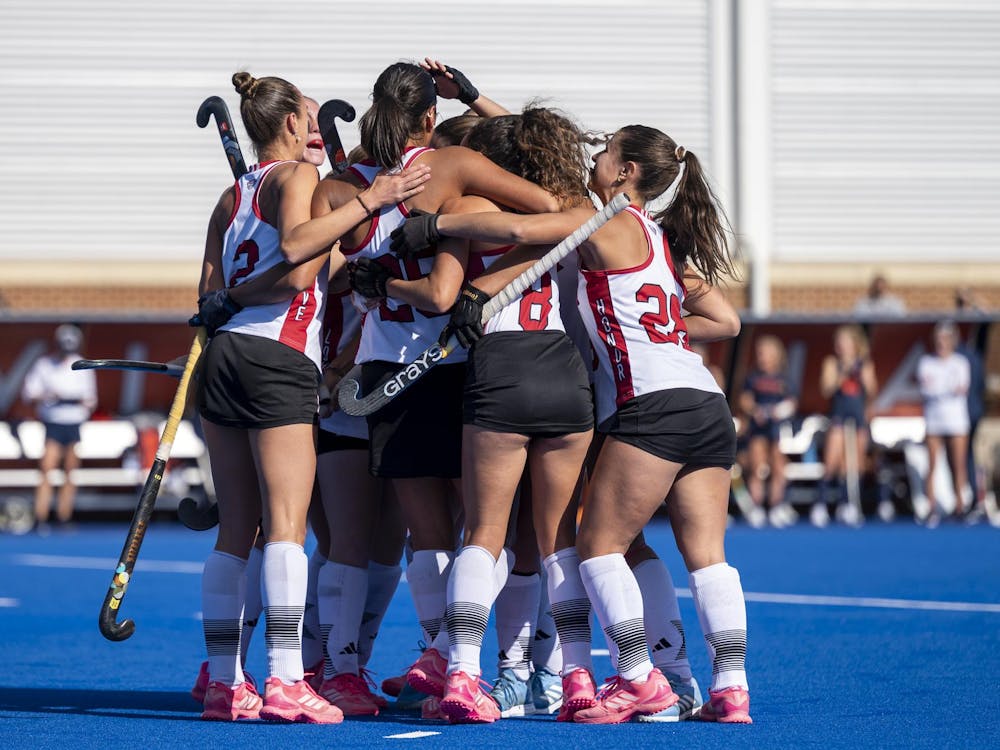All Jacked Up
By Jack Reyering, For The Miami Student
It's deja vu in Kentucky.
But it's not basketball head coach John Calipari in the hot seat this time.
His neighbor to the west, University of Louisville basketball head coach Rick Pitino, is in trouble for a violation similar to the one Calipari was found guilty of during his less than unblemished college basketball coaching career.
Former stripper Katina Powell released a book accusing a former Louisville basketball assistant of paying her and other strippers to offer sex to recruits. These accusations have since been confirmed by former recruits and players.
In a day and age where almost nothing can be kept secret, how do these people expect to get away with these unethical practices? Have they learned nothing from the past decade of scandals that have rocked college sports programs from coast to coast?
Well, maybe they have.
Take Calipari, for instance.
Calipari had several successful seasons as the head coach of University of Massachusetts, including a Final Four appearance in 1996. His 4-1 record in the 1996 NCAA tournament was later vacated because one of his players accepted money from an NBA agent.
After coaching in the NBA for the Nets, his next stop was in University of Memphis. Calipari's best year was 2008, when the Tigers won 38 games and made it to the championship game. In 2009, Calipari left for University of Kentucky.
Years later, it was discovered that former Memphis player Derrick Rose's SAT scores were fabricated. Calipari recruited and coached Rose during his collegiate career. Memphis was forced to vacate all 38 wins from the 2008 season
Enjoy what you're reading?
Signup for our newsletter
Now, Calipari is in Lexington, reaping the rewards of his years of unethical coaching practices. The programs he used as springboards to Kentucky were left to pick up the pieces and rebuild the messes he left behind.
So, if Calipari has learned anything, it's that as long as you aren't there to face the music, you can get away with a lot.
Miami University basketball head coach John Cooper pointed out that the NCAA is changing their tone towards violators, emphasizing penalty for coaches, not necessarily the program, in instances where they are responsible.
"Now what you're seeing is they're punishing coaches," Cooper said. "The question is now if someone gets in trouble at one school but has moved on to another, what is going to happen? How is the NCAA going to deal with that coach?"
Down in Louisville, Pitino now faces his own set of accusations, but with some key situational differences.
Pitino found a home in Louisville, a place many consider a destination program for coaches. There are few coaching jobs more lucrative in college basketball. Other than moving up to the NBA, the only place for him to go is down.
Unlike Calipari, Pitino was caught at the scene of the crime. Although it is yet to be proven he had knowledge of the situation, he is at least he guilty by association.
Cooper acknowledged head coaches might not be able to know everything that is going on, but that he also believes coaches should be held to a higher standard.
"Is there something that could go on that the head coach would not know about? Yes," Cooper said. "Obviously some people find that hard to believe. But we certainly have standards here that we try to adhere to, and that starts with me. When I go home at night I just want to know that we've attempted to do the absolute best that we can and we've done it in the right way."
Cooper also knows that minor mistakes can be made, often unintentionally.
But Louisville's violation is far from minor.
In the wake of numerous scandals in college sports in the past decade (think Penn State, Syracuse, UNC, etc.) now is the time for the NCAA and individual universities to set a new precedent: zero tolerance.
When coaches or staff members decide to break the rules, they must be held accountable. Disciplinary responses need to go beyond a simple slap on the wrist. People need to be suspended or fired based on the severity of the violation. Blaming a singular scapegoat within the organization should no longer be a viable cop-out.
Pitino is captain of the ship at Louisville. As head coach, he is responsible for everyone under him, from his assistant coaches to his managers. With such an egregious violation, Pitino should feel the repercussions of what he allowed to go on within his program, whether he knew about it or not.
Examples must be set. Louisville needs to hurt, and the basketball community needs to see it. There must be a disincentive to severely outweigh the benefits of these types of shady, unethical practices. Otherwise nothing will change.
The integrity of the game will continue to deteriorate. Precedent shows coaches will dodge accusations, create a scapegoat or abandon ship.
For too long, a handful of coaches operated under the principle of see no evil, hear no evil, speak no evil.
It's not fair to Cooper and countless other coaches across college sports who operate within the boundaries.




